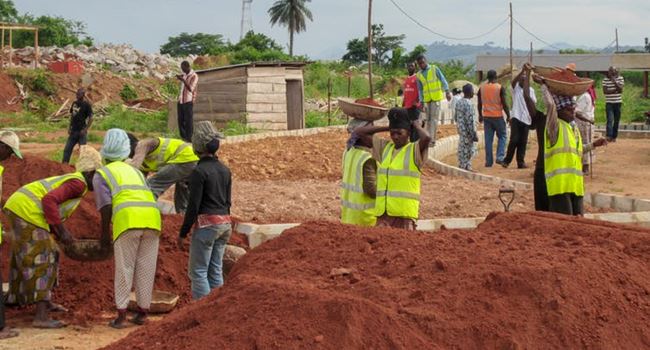Metro
The city of Akure is developing fast. But citizens aren’t having their say

Akure, the medium-sized capital of Ondo State in Southwest Nigeria, has seen its population increase by more than 54% in 13 years. Akure’s population growth is explained by two factors. Ondo State is a part of the Niger Delta, the oil-producing region of Nigeria. In 2006, Akure was classified as a Millennium Development City, as part of its commitment to the eight development goals UN member states agreed to achieve by 2015.
Akure’s population was 360,268 in 2006, according to that year’s National Population and Housing Census. Using a yearly percentage increase of 3.2%, the population of the city in 2019 would be 559,940 people.
As a result, several infrastructure projects have been carried out in the city in a bid to improve the lives of the people who live there. But these developments have been done mainly in a top-down way. This flies in the face of a growing global trend which has seen community participation take root. Examples include projects in South Africa, Botswana, Japan, Canada, and the UK.
This practice is growing globally because people directly affected by developments are increasingly being recognised as an essential part of the process. It ensures that the infrastructure projects truly meet the needs of the beneficiaries. Providing housing and other infrastructure that doesn’t consider the actual needs of the users usually leads to outcomes that don’t suit people’s needs.
To understand community participation in Akure’s development, we studied the socio-economic characteristics of residents in the city viz-a-viz their influence on decisions about infrastructure development. The study shows that the government provided some facilities, such as asphalted roads, drainage and water supply, to some communities, but not to all.
We observed during our study two ways in which government neglected the people of Akure. The first was that government neglected some communities in the city by not providing them with infrastructure, forcing them to resort to self-help. The second is that in the communities where government provided infrastructure, it did not involve the beneficiaries in the process of planning and developing. This meant that facilities were provided based on assumptions being made by government officials.
Our findings show that 92.2% of the residents of Akure were not involved in the process of providing government-led infrastructure in their communities. This is a very high percentage and it has negative implications for satisfying the needs of the communities. Since communities are always at the receiving end of the results of projects, it’s only logical that they should be at the centre of the decision-making processes about what’s going to be built.
Involvement
Our study found that a number of factors influenced whether people were consulted or not. Among the factors that affected this were marital status, gender, education, employment status, income level, tenure status, household size and sources of finance.
We found that people were more likely to participate in infrastructure provision when they were homeowners than if they were renters. People who had higher levels of education were also more involved, as were people with jobs and who earned an income. In addition, married people were more likely to participate.
So how can Akure attempt to ensure that specific community needs are met for infrastructure provision?
One of the first things the city should be doing is to understand that the current paternalistic approach is flawed and needs to be changed. It should also be noted that for appropriate community participation, one size does not fit all, and what applies to one community does not necessarily apply to another. This is true even if they are in the same city.
However, one thing that should be common to all is that government authorities must always make the effort to seek out the beneficiary communities. Government must also seek to understand their needs and their characteristics. Both parties can in the process iron out the details of the proposed projects as well as their respective levels of involvement in the projects. A thorough understanding of the communities, their specific needs and their uniqueness will improve the chances of making the correct decision and meeting the identified needs.
Akure needs to change the current flawed approach to infrastructure provision.
Fakere Alexander Adeyemi, Senior Lecturer in Architecture, Federal University of Technology, Akure and Ayoola Hezekiah Adedayo, Senior lecturer, Federal University of Technology, Akure
This article is republished from The Conversation under a Creative Commons license. Read the original article.
Join the conversation
Opinions
Support Ripples Nigeria, hold up solutions journalism
Balanced, fearless journalism driven by data comes at huge financial costs.
As a media platform, we hold leadership accountable and will not trade the right to press freedom and free speech for a piece of cake.
If you like what we do, and are ready to uphold solutions journalism, kindly donate to the Ripples Nigeria cause.
Your support would help to ensure that citizens and institutions continue to have free access to credible and reliable information for societal development.